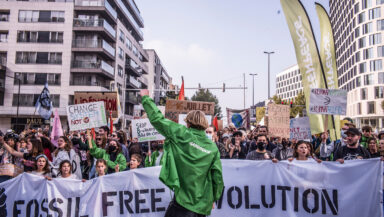A confession: climate anxiety or its sister, climate doom, hits me roughly once a fortnight. It starts with a jittery sense that knots my stomach. Then it winds upwards, wrapping my heart tight, curdling my throat and setting my mind racing. After enough times, knotty sensations and thinking wear you down, no matter what sets it off. I can chalk up this year’s anguish to working in environmental campaigning. But fear and frustration about the climate crisis were visitors before then – and not only for me.
Most of us feel some worry about the climate crisis. 84% of young people worldwide say they feel worried about climate change. The 2021 census reports that 75% of adults in Britain are worried about the impact of climate change.
It’s not surprising that we’re feeling distressed. The climate crisis poses a huge threat to life and those with power seem slow to act. For people facing the impacts already, the climate crisis is here and now. Fear, sadness and anger are natural emotional responses. But they can make you feel isolated and powerless. Climate anxiety may overwhelm us and stop us from doing something that can help: taking action together.
Releasing the grip of climate anxiety isn’t always easy. Finding what works for you might take some trial and error. To get us going, I asked Greenpeace staff for tips and resources for managing climate anxiety.
Places to talk with others
If you want to talk openly about climate change, then consider signing up for a climate cafe. They’re a real or virtual space to talk about the crisis over a cup of tea.
Laura in Greenpeace’s outreach team joined one recently:



